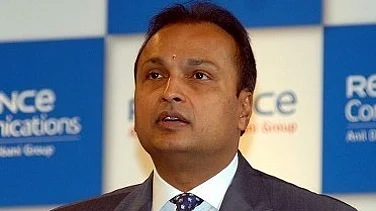Economic recovery has not yet become broad-based and sustainable as only creamier sections are consuming, India Ratings and Research said on Wednesday and added that the FY24 budget is expected to continue with social sector spending.
The annual budget for the financial year 2023-24 will be presented in parliament on February 1.
Finance Minister Nirmala Sitharaman will focus on making consumption demand resilient, boosting infrastructure and manufacturing capex, skill development and increasing productivity, fiscal consolidation and climate change in the last budget of this government, the agency said.
It said there is likely to be a "stark difference" between economic performances of the first and second halves of FY23, which will suggest that it is only the upper layers which are driving the private final consumption, the agency said.
"Anecdotal evidence suggests that the gap between have and have nots has widened. ...various social welfare schemes such as PM-KISAN and MGNREGA will not only continue but will also get appropriate resource allocation in the FY24 budget," the agency said.
It added that the recently announced measure on the free food grains front under the National Food Security Act for 813.5 million poor from 1 January 2023 to 31 December 2023 is a step in the same direction.
Spending power of the lower- or middle-income class has been "eroded significantly" due to higher inflation and negligible or negative real wage growth over the past few years, it said, adding some relief on the income tax front in the FY24 budget will go a long way in alleviating their pain and can provide the much-needed thrust to the consumption demand.
On the infrastructure front, it expected the budget to increase capital expenditure to Rs 8.50 lakh crore in FY24 in order to build and strengthen vital infrastructure which could act as a foundation for a broad-based and sustainable recovery.
With the private sector not keen to come forward to invest, the agency said the budget can look at the customs duty front, saying inverted or distorted duty structures in select areas and sectors have been waiting for a correction for a long.
The agency said the budget would attempt a more gradual approach towards fiscal consolidation and therefore the fiscal deficit may get pegged at about 6.0 per cent of the GDP.
On the skill development front, it termed the decline in the contribution of quality of labour to India's GDP growth to 4.5 per cent during FY16-FY19 from 9.5 per cent during FY06-FY10 as a "cause of worry".
This is happening because India is lagging behind in equipping its workforce with the requisite skill set and education to cope up with the technological/business/ managerial changes occurring in the economy, the agency said, expecting an uptick in allocations on this front.
With India announcing climate commitments, the next logical step in this direction is to announce a road map to adopt climate responsive budgeting in the FY24 Union Budget, it said.


























.jpg?w=200&auto=format%2Ccompress&fit=max)




